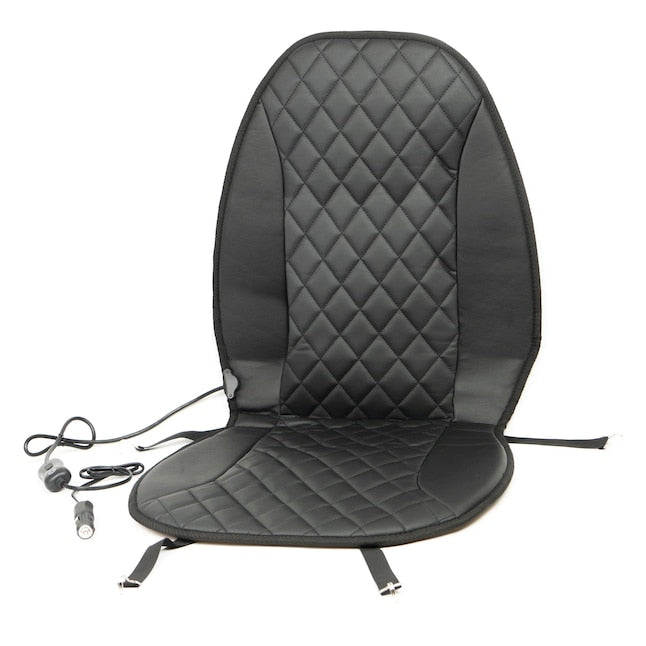Sustainable Car Seat Comfort Eco-Friendly Materials for Enhanced Driving Experience
In today's world, environmental consciousness is becoming increasingly important in every aspect of our lives. This includes the materials we use in our vehicles, such as car seat cushions. Traditional car seat cushions are often made from synthetic materials that harm the environment and take hundreds of years to decompose. Fortunately, there are now a variety of eco-friendly options available for car seat cushions, providing consumers with a sustainable and comfortable choice.
Car Seat Cushions: Combining Comfort with Environmental Responsibility

Car seats are an essential component of any vehicle, providing comfort and support during long drives. However, traditional car seat cushions are often made from synthetic materials such as polyester or nylon, which are derived from non-renewable fossil fuels. These materials not only contribute to the depletion of our natural resources but also release harmful chemicals into the environment during production.
On the other hand, eco-friendly car seat cushions are made from sustainable materials that have a lesser impact on the environment. They not only reduce our carbon footprint but also provide a healthier and more comfortable driving experience. Let's explore some of the eco-friendly materials used in car seat cushions.
Eco-Conscious Driving: Exploring Sustainable Car Seat Cushions

-
Natural Fibers
One of the most popular options for eco-friendly car seat cushions is natural fibers. These materials are biodegradable and renewable, making them an excellent choice for environmentally conscious drivers. Some of the commonly used natural fibers are cotton, wool, and linen.
- Cotton: Cotton is a soft and breathable fabric that is easy to clean and maintain. It is also hypoallergenic, making it a suitable option for people with sensitive skin. As a natural fiber, cotton is biodegradable, meaning it can break down quickly without causing any harm to the environment.
- Wool: Wool is known for its natural insulation properties, making it an ideal material for car seat cushions. It keeps you warm in cold weather and cool in hot weather, providing a comfortable driving experience all year round. Additionally, wool is naturally flame-resistant, eliminating the need for chemical fire retardants.
- Linen: Linen is a strong and durable fabric that is resistant to wrinkles and fading. It is also naturally antibacterial and antimicrobial, making it a perfect choice for people who are concerned about germs. Linen is also highly absorbent, making it suitable for hot and humid climates.
-
Recycled Materials
Another eco-friendly option for car seat cushions is using recycled materials. This helps reduce waste and gives new life to materials that would otherwise end up in landfills. Some of the commonly used recycled materials for car seat cushions include:
- Recycled Plastic Bottles: Plastic bottles are one of the biggest contributors to pollution, and recycling them into car seat cushions can help reduce their environmental impact. These cushions are made by shredding and melting down the plastic bottles and turning them into soft and comfortable padding.
- Recycled Polyester: Polyester is a common synthetic material used in traditional car seat cushions. However, by using recycled polyester, we can reduce the production of new polyester, which requires large amounts of energy and resources. Recycled polyester is made from post-consumer waste, such as plastic bottles or textile scraps.
- Recycled Foam: Foam is often used as padding in car seat cushions, but it is not biodegradable. By using recycled foam, we can reduce our carbon footprint and minimize waste. Recycled foam is made by breaking down old foam and reconstituting it into a new product.
-
Organic Materials
Organic materials are grown without the use of harmful chemicals, making them a healthier and more sustainable option for car seat cushions. These materials are free from pesticides and herbicides, and they do not release harmful toxins into the environment during production. Some popular organic materials used in car seat cushions are:
- Organic Cotton: Similar to conventional cotton, organic cotton is soft and breathable. However, it is grown without the use of synthetic pesticides or fertilizers, making it a healthier alternative for both the environment and consumers.
- Organic Wool: Organic wool is produced from sheep raised on organic pastures, without the use of antibiotics or hormones. It is free from chemical treatments, making it a sustainable and hypoallergenic option for car seat cushions.
- Organic Latex: Organic latex is made from the sap of rubber trees, making it a renewable and biodegradable material. It provides a comfortable and supportive cushioning, making it an excellent choice for car seats.
Car Seat Cushion Revolution: Embracing Eco-Friendly Materials for Comfort and Health

-
Benefits of Eco-Friendly Car Seat Cushions
Aside from being environmentally friendly, using eco-friendly car seat cushions also comes with several benefits for consumers. These include:
- Improved Air Quality: Traditional car seat cushions are often treated with flame retardants and other chemicals, which can release harmful toxins into the air. Eco-friendly materials, on the other hand, are free from such chemicals, providing better air quality inside the vehicle.
- Reduced Allergens: Synthetic materials in traditional car seat cushions can harbor allergens such as dust, pollen, and pet hair. Eco-friendly materials, such as natural fibers, are naturally hypoallergenic, making them a better option for people with allergies.
- Enhanced Comfort: Eco-friendly materials, such as wool and cotton, are naturally breathable, making them ideal for car seat cushions. They help regulate temperature, keeping you cool in hot weather and warm in cold weather.
- Sustainable: By opting for eco-friendly car seat cushions, you are making a sustainable choice that reduces your carbon footprint and contributes to a cleaner environment for future generations.
-
Drawbacks of Traditional Car Seat Cushions
Traditional car seat cushions made from synthetic materials have several disadvantages, including:
- Environmental Impact: The production of synthetic materials such as polyester and nylon requires large amounts of energy and resources, contributing to greenhouse gas emissions and pollution.
- Non-Biodegradable: These materials take hundreds of years to decompose, filling up landfills and harming the environment.
- Health Concerns: The chemicals used in the production of synthetic materials can be harmful to both the environment and human health. They can release toxins into the air and leach into our bodies, potentially causing health issues.
- Poor Air Quality: These materials can also release volatile organic compounds (VOCs) into the air, leading to poor indoor air quality in vehicles.
Environmentally Aware Travel: Eco-Friendly Car Seat Cushions

In addition to using eco-friendly materials for car seat cushions, there are other ways to make your vehicle more environmentally friendly. Here are some tips for an eco-conscious driving experience:
-
Regular Maintenance
Performing regular maintenance on your vehicle not only ensures its smooth functioning but also reduces its environmental impact. Regular oil changes, tire rotations, and tune-ups can improve fuel efficiency, reducing the emission of harmful pollutants into the air.
-
Avoid Idling
Idling your vehicle for long periods releases unnecessary pollutants into the air. If you're going to be stopped for more than 10 seconds, it is better to turn off your engine to reduce carbon emissions.
-
Proper Tire Inflation
Properly inflated tires can improve fuel efficiency and reduce the emission of pollutants. Check your tire pressure regularly and ensure they are at the recommended level.
-
Use Public Transportation or Carpool
Whenever possible, opt for public transportation or carpool to reduce the number of vehicles on the road, thereby reducing carbon emissions. This is also a great way to save on gas and reduce your carbon footprint.
-
Sustainable Driving Habits
Simple driving habits like avoiding sudden stops and starts, maintaining a constant speed, and avoiding excessive acceleration can reduce fuel consumption and minimize your vehicle's impact on the environment.
Green Choices for Enhanced Rides: Sustainable Car Seat Cushions

-
Choosing the Right Eco-Friendly Materials
When looking for eco-friendly car seat cushions, make sure to check the materials used in their production. Look for natural fibers such as cotton, wool, and linen, recycled materials like plastic bottles and polyester, or organic materials like organic cotton, wool, and latex.
-
Investigate Brands
Research brands that offer eco-friendly car seat cushions and find out about their manufacturing processes and the materials they use. Look for certifications such as Global Organic Textile Standard (GOTS) or Oeko-Tex Standard 100 that ensure the product is environmentally friendly and safe for consumers.
-
Consider Your Needs
When choosing an eco-friendly car seat cushion, consider your needs and preferences. For example, if you have allergies, opt for hypoallergenic materials such as wool or organic cotton. If you live in a hot climate, a moisture-wicking material like linen might be a better choice.
Comfort and Sustainability United: Eco-Friendly Car Seat Cushions
Eco-friendly car seat cushions are not only beneficial for the environment but also provide a more comfortable and healthier driving experience for consumers. By opting for sustainable materials, we can reduce our environmental impact and contribute to a cleaner and greener planet.
Eco-Conscious Vehicle Interiors: Sustainable Car Seat Cushions
Car seat cushions are just one aspect of making our vehicles more environmentally friendly. Other interior components, such as carpets and upholstery, can also be made from eco-friendly materials. These options include:
- Natural Fibers: Natural fibers such as cotton, wool, and jute can be used for carpets and upholstery. They are biodegradable and renewable, making them a sustainable choice.
- Recycled Materials: Recycled plastic bottles and recycled polyester can also be used for carpets and upholstery, reducing the production of new materials.
- Cork: Cork is a sustainable option for car interiors as it is produced from the bark of cork oak trees without harming the tree. It is also naturally antimicrobial and easy to maintain.
- Hemp: Hemp is a durable and sustainable material that can be used for upholstery and carpeting. It requires less water and pesticides to grow compared to cotton.
- Bamboo: Bamboo is a fast-growing and renewable resource that can be used for interior components such as dashboards and door panels. It is also lightweight and strong.
Driving Responsibly: Eco-Friendly Materials for Car Seat Cushions
As consumers, we have the power to make environmentally responsible choices when it comes to our purchases. By opting for eco-friendly materials in our car seat cushions, we not only reduce our carbon footprint but also contribute to the demand for more sustainable products in the market.
Sustainable Driving Practices: The Power of Eco-Friendly Car Seat Cushions
Apart from choosing eco-friendly car seat cushions, we can also practice sustainable driving habits to reduce our environmental impact. This includes avoiding unnecessary idling, using public transportation or carpooling, and maintaining our vehicles regularly. Together, these efforts can make a significant difference in reducing greenhouse gas emissions and promoting a cleaner and healthier planet.
Conclusion
In conclusion, eco-friendly materials provide a sustainable and comfortable option for car seat cushions. With the wide variety of natural, recycled, and organic materials available, consumers can make an informed decision to minimize their environmental impact. By choosing eco-friendly car seat cushions and adopting sustainable driving practices, we can drive responsibly and contribute to a greener future. Let's make the switch to eco-friendly materials for our car interiors and pave the way for a more sustainable transportation industry.



